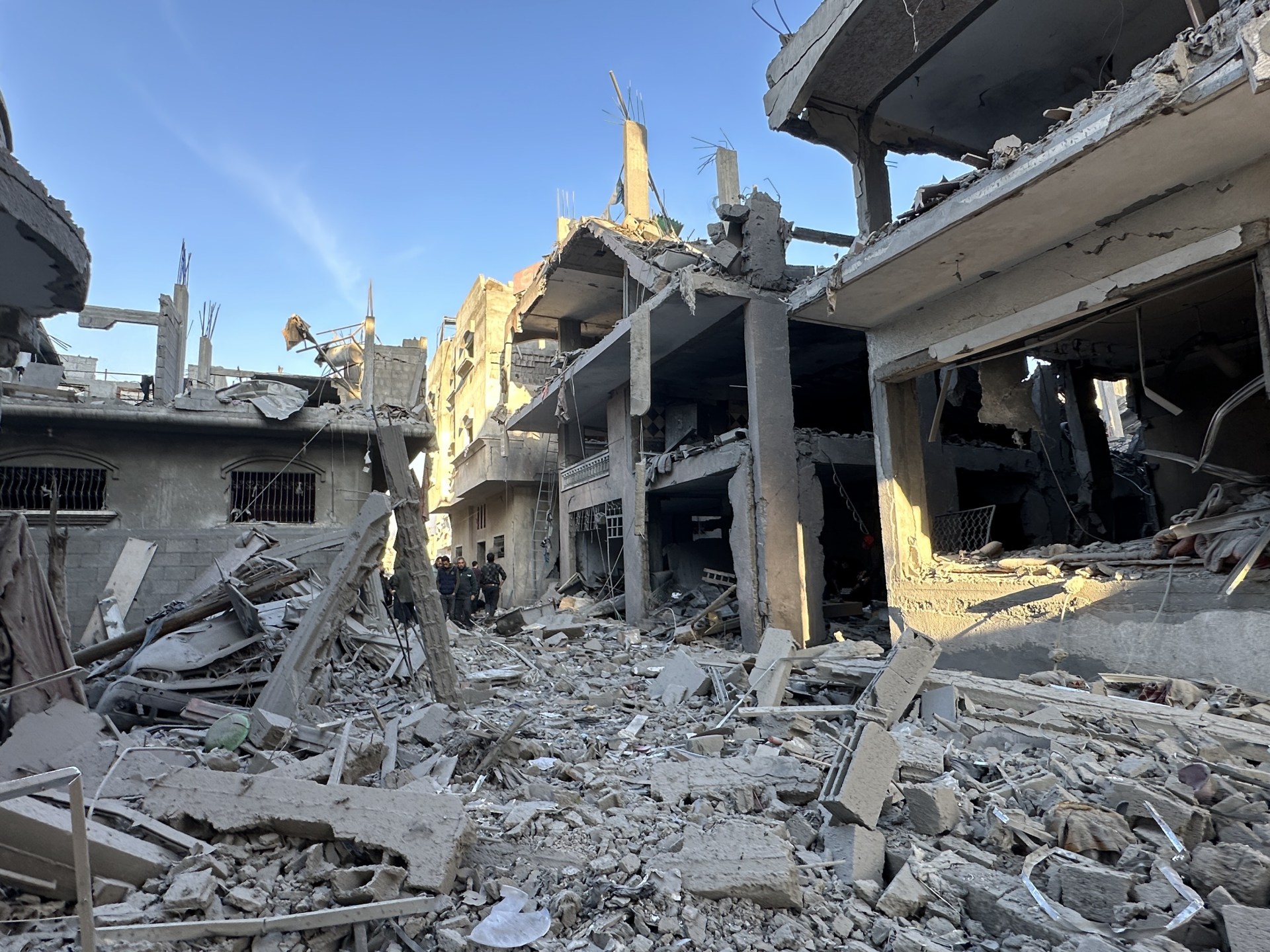Tap Into Indigenous Knowledge To Preserve Our Forests — Global Issues
YAOUNDÉ, Jul 06 (IPS) – A few years ago, I found myself in the Baka indigenous sacred forest in Assok, in Cameroon in the course of my work in supporting them to preserve their forest against land grabbers. We were building a forest hut using only leaves and the knowledge of our indigenous partners.
I was skeptical when we started. “What about rain,” I thought. But the leaves were placed in a way that the rain simply flowed down the sides. Inside was warm and dry.
Indigenous forest peoples are recognized as the first inhabitants of the forests around the world. For millennia Indigenous People have lived symbiotically with nature – gathering fruits and insects; hunting, and protecting the environment they rely upon.
In the Congo Basin, around 50 million Indigenous Peoplesdepend on forests yet they are the most vulnerable, the most marginalized and the poorestinhabitants of a region that stretches across some five countries including Cameroon, Gabon and the Democratic Republic of Congo.
I have interacted with various indigenous people over the last decade as part of my work as an environmental advocate. In Cameroon, where I live, the Indigenous World 2022 Report estimates Baka, Bagyeli and Bedzang peoples represent 0.4% of the total population while the Mbororo pastoralists make up 12%. These interactions include numerous field visits to their ancestral land where I have admired their solidarity and harmony in living with nature.
Over the generations, Indigenous People have developed their own codes of forest conservation, including preventing overhunting with methods that include rotational hunting and harvesting. For instance, the Baka don’t hunt in sacred sites, at a place where a newborn has been circumcised and nor do they hunt large mammals. They eat only fresh meat so hunt only that which can be consumed.
I am amazed by their extensive knowledge of forest medicinal plants and their uses. Prior to the expropriation of their ancestral land by logging and Agribusiness companies, they hardly went to the hospital. While COVID-19 and deforestation have changed that, we still have much to learn from them. For them, forest conservation is not an isolated, compartmentalized concept but an integrated part of their lives.
Yet their very rich traditional culture-and often their lives are at risk: experts say up to 10 indigenous linguistic identities are at risk of disappearing. Embedded in that language is identity and their cultural knowledge, which will also disappear.
When we mark International Day of the World’s Indigenous Peoples on August 9, we can expect politicians to invite them for photo ops and public appearances. But we have to ask what will be done to really prevent them and their language and expertise from disappearing?
I’ve seen the power of Indigenous Peoples’ ancestral knowledge and wisdom about forest and biodiversity sustainable management. If we embrace this expertise we will be taking the most cost-effective ways to reduce poverty, preserve biodiversity, halt deforestation and contribute to reducing the harmful effects of climate change.
Globally, this is a powerful path forward for responding to climate change, improving the environmental, and advancing justice. Indigenous Peoples make up about 6.2% of the world’s population, but they safeguard 80% of the planet’s biodiversity. Their sophisticated knowledge of the natural forest – documented by scientific research worldwide – allows forests and biodiversity to flourish. Their sustainable land use fights climate change and builds resilience to natural disasters and pandemic.
Among the recommendations made by Indigenous leaders at the last COP 26 global climate conference, was the recognition of the rights and land tenure of Indigenous Peoples’ to land, forest and water and that Indigenous Peoples, as knowledge holders, should be able to participate directly with their own voices in the UN process to ensure that their “rights, cultures, lands and ways of life” be respected. US$1.7 billion was announced during the last COP 26 to help Indigenous and local communities protect the biodiversity of tropical forests that are vital to protecting the planet from climate change, biodiversity loss, and pandemic risk.
Little has changed on the ground, despite another recent paper further confirming that traditional ways of using and managing biodiversity are grounded in progressive principles of sustainability. In short, indigenous knowledge and management systems represent critical yet frequently untapped resources in global conservation efforts.
Despite this evidence and policy recommendations, it is business as usual where conflict, insecurity, lack of recognition of Indigenous Peoples land rights, expropriation, lack of inclusion and participation in the decision-making process continues.
COP27 will take place in Egypt, an African country, this year. It is my hope that a delegation from the Congo Basin will not only be there but will influence climate change policies and decisions.
Indigenous Forest Peoples cannot assume the burden of global conservation and climate mitigation challenges without our support.
My question to the global climate leaders and government authorities is this: what has happened to the COP 26 IPLC forest tenure Joint Donor Statement that pledged for support indigenous people’s land tenure rights and guardianship of the world’s forests?
Business as usual will not save us. If we don’t act to preserve our forest guardians and their knowledge and properly involve them in our conservation effort, we will lose their rich wisdom and knowledge.
Without healthy, thriving forests, we will never see the sustainable future we are aiming for.
Sylvie Djacbou Deugoue is a 2022 New Voices Fellow, Co-Founder of Youth in Action (YouAct) and Greenpeace Africa forest Campaigner. The views expressed in this article are the author’s own.
© Inter Press Service (2022) — All Rights ReservedOriginal source: Inter Press Service
Check out our Latest News and Follow us at Facebook
Original Source






